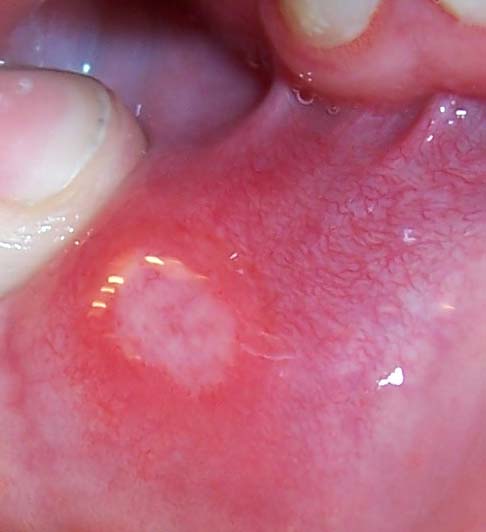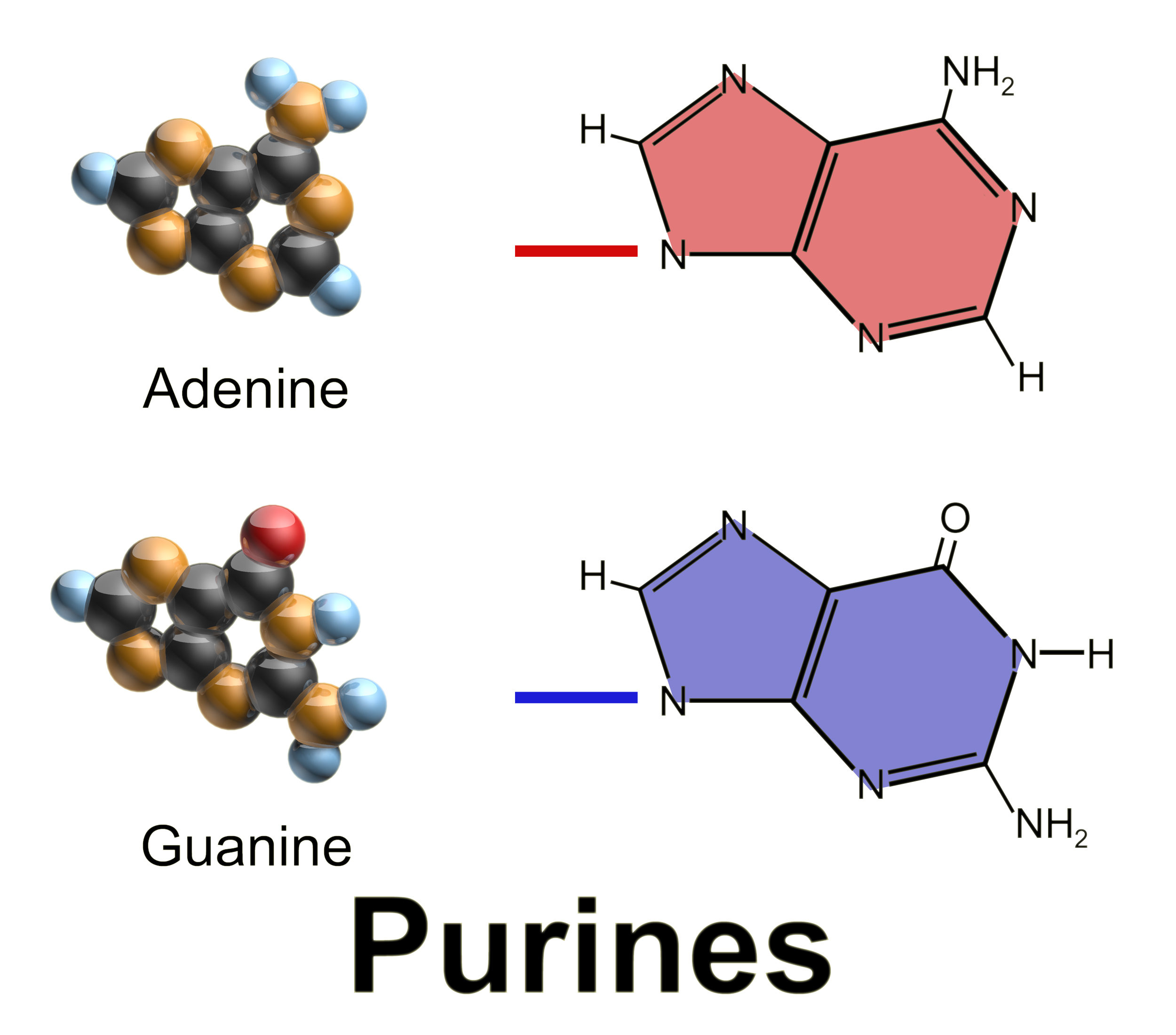|
Thiopurine
The thiopurine drugs are purine antimetabolites widely used in the treatment of acute lymphoblastic leukemia, autoimmune disorders (e.g., Crohn's disease, rheumatoid arthritis), and organ transplant recipients. Metabolism is catalyzed by S-methyltransferase. Litigation over patents covering diagnostic kits to monitor the dosing of these drugs led to a US Supreme Court case, ''Mayo Collaborative Services v. Prometheus Laboratories, Inc.'' that dramatically changed the nature of patent law in the United States.Supreme Court Decision. Mayo Collaborative Services v. Prometheus Laboratories, Inc., No. 10-1150, Slip Op. at 16Decision/ref>Gene Quinn''Killing Industry: The Supreme Court Blows Mayo v. Prometheus'' (March 20, 2012). See also * 6-Mercaptopurine (6-MP) * 6-Thioguanine (6-TG) * Azathioprine Azathioprine (AZA), sold under the brand name Imuran, among others, is an immunosuppressive medication. It is used in rheumatoid arthritis, granulomatosis with polyangiitis, Crohn's ... [...More Info...] [...Related Items...] OR: [Wikipedia] [Google] [Baidu] |
S-methyltransferase
Thiopurine methyltransferase or thiopurine S-methyltransferase (TPMT) is an enzyme that in humans is encoded by the ''TPMT'' gene. A pseudogene for this locus is located on chromosome 18q. Function Thiopurine methyltransferase methylation, methylates thiopurine compounds. The methyl donor is S-adenosyl-L-methionine, which is converted to S-adenosyl-L-homocysteine. This enzyme metabolizes thiopurine drugs via S-Adenosyl methionine, S-adenosyl-L-methionine as the S-methyl donor and S-Adenosyl-L-homocysteine, S-adenosyl-L-homocysteine as a byproduct. Clinical significance Thiopurine drugs such as 6-mercaptopurine are used as Chemotherapy, chemotherapeutic agents and immunosuppressive drugs. Genetic polymorphisms that affect this enzymatic activity are correlated with variations in sensitivity and toxicity to such drugs within individuals. About 1/300 individual is deficient for the enzyme. Pharmacology TPMT is best known for its role in the metabolism of the thiopurine dr ... [...More Info...] [...Related Items...] OR: [Wikipedia] [Google] [Baidu] |
Tioguanine
Tioguanine, also known as thioguanine or 6-thioguanine (6-TG) is a medication used to treat acute myeloid leukemia (AML), acute lymphocytic leukemia (ALL), and chronic myeloid leukemia (CML). Long-term use is not recommended. It is given by mouth. Common side effects include bone marrow suppression, liver problems and inflammation of the mouth. It is recommended that liver enzymes be checked weekly when on the medication. People with a genetic deficiency in thiopurine S-methyltransferase are at higher risk of side effects. Avoiding pregnancy when on the medication is recommended for both males and females. Tioguanine is in the antimetabolite family of medications. It is a purine analogue of guanine and works by disrupting DNA and RNA. Tioguanine was developed between 1949 and 1951. It is on the World Health Organization's List of Essential Medicines. Medical uses *Acute leukemias in both adults and children * Chronic myelogenous leukemia * Inflammatory bowel disease, especi ... [...More Info...] [...Related Items...] OR: [Wikipedia] [Google] [Baidu] |
Mercaptopurine
Mercaptopurine (6-MP), sold under the brand name Purinethol among others, is a medication used for cancer and autoimmune diseases. Specifically it is used to treat acute lymphocytic leukemia (ALL), acute promyelocytic leukemia (APL), Crohn's disease, and ulcerative colitis. For acute lymphocytic leukemia it is generally used with methotrexate. It is taken by mouth. Common side effects include bone marrow suppression, liver toxicity, vomiting, and loss of appetite. Other serious side effects include an increased risk of future cancer and pancreatitis. Those with a genetic deficiency in thiopurine S-methyltransferase are at higher risk of side effects. Use in pregnancy may harm the baby. Mercaptopurine is in the thiopurine and antimetabolite family of medications. Mercaptopurine was approved for medical use in the United States in 1953. It is on the World Health Organization's List of Essential Medicines. Medical uses It is used to treat acute lymphocytic leukemia, Crohn's ... [...More Info...] [...Related Items...] OR: [Wikipedia] [Google] [Baidu] |
6-Mercaptopurine
Mercaptopurine (6-MP), sold under the brand name Purinethol among others, is a medication used for cancer and autoimmune diseases. Specifically it is used to treat acute lymphocytic leukemia (ALL), acute promyelocytic leukemia (APL), Crohn's disease, and ulcerative colitis. For acute lymphocytic leukemia it is generally used with methotrexate. It is taken by mouth. Common side effects include bone marrow suppression, liver toxicity, vomiting, and loss of appetite. Other serious side effects include an increased risk of future cancer and pancreatitis. Those with a genetic deficiency in thiopurine S-methyltransferase are at higher risk of side effects. Use in pregnancy may harm the baby. Mercaptopurine is in the thiopurine and antimetabolite family of medications. Mercaptopurine was approved for medical use in the United States in 1953. It is on the World Health Organization's List of Essential Medicines. Medical uses It is used to treat acute lymphocytic leukemia, Crohn' ... [...More Info...] [...Related Items...] OR: [Wikipedia] [Google] [Baidu] |
6-Thioguanine
Tioguanine, also known as thioguanine or 6-thioguanine (6-TG) is a medication used to treat acute myeloid leukemia (AML), acute lymphocytic leukemia (ALL), and chronic myeloid leukemia (CML). Long-term use is not recommended. It is given by mouth. Common side effects include bone marrow suppression, liver problems and inflammation of the mouth. It is recommended that liver enzymes be checked weekly when on the medication. People with a genetic deficiency in thiopurine S-methyltransferase are at higher risk of side effects. Avoiding pregnancy when on the medication is recommended for both males and females. Tioguanine is in the antimetabolite family of medications. It is a purine analogue of guanine and works by disrupting DNA and RNA. Tioguanine was developed between 1949 and 1951. It is on the World Health Organization's List of Essential Medicines. Medical uses *Acute leukemias in both adults and children * Chronic myelogenous leukemia * Inflammatory bowel disease, especia ... [...More Info...] [...Related Items...] OR: [Wikipedia] [Google] [Baidu] |
Azathioprine
Azathioprine (AZA), sold under the brand name Imuran, among others, is an immunosuppressive medication. It is used in rheumatoid arthritis, granulomatosis with polyangiitis, Crohn's disease, ulcerative colitis, and systemic lupus erythematosus, and in kidney transplants to prevent rejection. It is listed by the International Agency for Research on Cancer as a group 1 carcinogen (carcinogenic to humans). It is taken by mouth or injected into a vein. Common side effects include bone-marrow suppression and vomiting. Bone-marrow suppression is especially common in people with a genetic deficiency of the enzyme thiopurine S-methyltransferase. Other serious risk factors include an increased risk of certain cancers. Use during pregnancy may result in harm to the baby. Azathioprine is in the purine analogue and antimetabolite family of medications. It works via 6-thioguanine to disrupt the making of RNA and DNA by cells. Azathioprine was first made in 1957. It is on the World ... [...More Info...] [...Related Items...] OR: [Wikipedia] [Google] [Baidu] |
Crohn's Disease
Crohn's disease is a type of inflammatory bowel disease (IBD) that may affect any segment of the gastrointestinal tract. Symptoms often include abdominal pain, diarrhea (which may be bloody if inflammation is severe), fever, abdominal distension, and weight loss. Complications outside of the gastrointestinal tract may include anemia, skin rashes, arthritis, inflammation of the eye, and fatigue. The skin rashes may be due to infections as well as pyoderma gangrenosum or erythema nodosum. Bowel obstruction may occur as a complication of chronic inflammation, and those with the disease are at greater risk of colon cancer and small bowel cancer. While the precise causes of Crohn's disease (CD) are unknown, it is believed to be caused by a combination of environmental, immune, and bacterial factors in genetically susceptible individuals. It results in a chronic inflammatory disorder, in which the body's immune system defends the gastrointestinal tract, possibly targeting ... [...More Info...] [...Related Items...] OR: [Wikipedia] [Google] [Baidu] |
Purine
Purine is a heterocyclic aromatic organic compound that consists of two rings ( pyrimidine and imidazole) fused together. It is water-soluble. Purine also gives its name to the wider class of molecules, purines, which include substituted purines and their tautomers. They are the most widely occurring nitrogen-containing heterocycles in nature. Dietary sources Purines are found in high concentration in meat and meat products, especially internal organs such as liver and kidney. In general, plant-based diets are low in purines. High-purine plants and algae include some legumes (lentils and black eye peas) and spirulina. Examples of high-purine sources include: sweetbreads, anchovies, sardines, liver, beef kidneys, brains, meat extracts (e.g., Oxo, Bovril), herring, mackerel, scallops, game meats, yeast (beer, yeast extract, nutritional yeast) and gravy. A moderate amount of purine is also contained in red meat, beef, pork, poultry, fish and seafood, asparagus, cauliflo ... [...More Info...] [...Related Items...] OR: [Wikipedia] [Google] [Baidu] |
Antimetabolite
An antimetabolite is a chemical that inhibits the use of a metabolite, which is another chemical that is part of normal metabolism. Such substances are often similar in structure to the metabolite that they interfere with, such as the antifolates that interfere with the use of folic acid; thus, competitive inhibition can occur, and the presence of antimetabolites can have toxic effects on cells, such as halting cell growth and cell division, so these compounds are used as chemotherapy for cancer. Function Cancer treatment Antimetabolites can be used in cancer treatment, as they interfere with DNA production and therefore cell division and tumor growth. Because cancer cells spend more time dividing than other cells, inhibiting cell division harms tumor cells more than other cells. Antimetabolite drugs are commonly used to treat leukemia, cancers of the breast, ovary, and the gastrointestinal tract, as well as other types of cancers. In the Anatomical Therapeutic Chemical Class ... [...More Info...] [...Related Items...] OR: [Wikipedia] [Google] [Baidu] |
Acute Lymphoblastic Leukemia
Acute lymphoblastic leukemia (ALL) is a cancer of the lymphoid line of blood cells characterized by the development of large numbers of immature lymphocytes. Symptoms may include feeling tired, pale skin color, fever, easy bleeding or bruising, enlarged lymph nodes, or bone pain. As an acute leukemia, ALL progresses rapidly and is typically fatal within weeks or months if left untreated. In most cases, the cause is unknown. Genetic risk factors may include Down syndrome, Li-Fraumeni syndrome, or neurofibromatosis type 1. Environmental risk factors may include significant radiation exposure or prior chemotherapy. Evidence regarding electromagnetic fields or pesticides is unclear. Some hypothesize that an abnormal immune response to a common infection may be a trigger. The underlying mechanism involves multiple genetic mutations that results in rapid cell division. The excessive immature lymphocytes in the bone marrow interfere with the production of new red blood ce ... [...More Info...] [...Related Items...] OR: [Wikipedia] [Google] [Baidu] |
Autoimmune Disorder
An autoimmune disease is a condition arising from an abnormal immune response to a functioning body part. At least 80 types of autoimmune diseases have been identified, with some evidence suggesting that there may be more than 100 types. Nearly any body part can be involved. Common symptoms can be diverse and transient, ranging from mild to severe, and generally include low grade fever and feeling tired. The cause is unknown. Some autoimmune diseases such as lupus run in families, and certain cases may be triggered by infections or other environmental factors. Some common diseases that are generally considered autoimmune include celiac disease, diabetes mellitus type 1, graves' disease, inflammatory bowel disease, multiple sclerosis, alopecia areata, addison’s disease, pernicious anemia, psoriasis, rheumatoid arthritis, and systemic lupus erythematosus. The diagnosis can be difficult to determine. Treatment depends on the type and severity of the condition. Nonstero ... [...More Info...] [...Related Items...] OR: [Wikipedia] [Google] [Baidu] |



